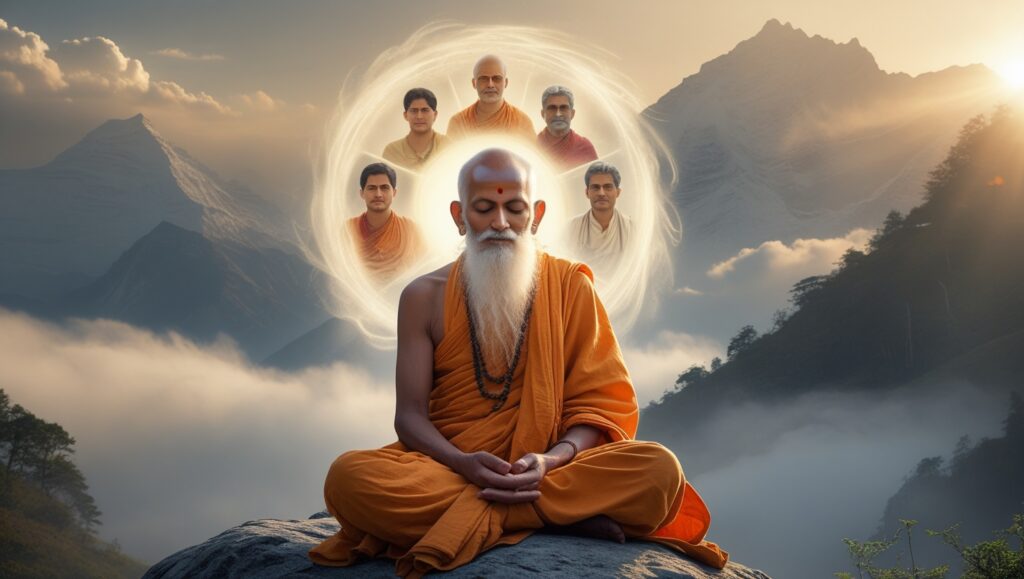In the vast and intricate philosophy of Hinduism, the concept of karma holds a pivotal place. Among the various types of karma described in ancient texts, Prarabdha Karma stands out as particularly significant — it is the karma that dictates our present life circumstances. To understand Prarabdha Karma fully, one must first grasp the broader framework of karma itself. The Sanskrit word “karma” means action or deed, but in a spiritual sense, it represents the law of moral causation — every action, thought, or intention leaves an imprint, creating consequences that unfold over time. Prarabdha Karma is a specific portion of this accumulated karma that has ripened and is currently active, determining the life experiences we undergo in the present. Unlike other forms of karma that remain dormant or are yet to materialize, Prarabdha is already in motion, shaping our reality in ways both visible and subtle. It is often compared to an arrow that has already been released from the bow — once set in motion, it must complete its course. This idea brings profound implications to our understanding of life, fate, and free will.
Prarabdha Karma is one of three classifications of karma, alongside Sanchita Karma and Agami Karma. Sanchita Karma represents the vast reservoir of accumulated actions from all past lives, a storehouse of potential experiences waiting to manifest. Agami Karma, on the other hand, is the fresh karma generated by our current actions, which will shape future experiences. Prarabdha Karma is the portion of Sanchita Karma that has been selected to bear fruit in this lifetime — it is the “active” karma that explains why we are born into specific circumstances, such as our family, body, environment, and even the major events that unfold throughout life. This segmentation of karma serves to reconcile the apparent randomness of life with the idea of cosmic justice. Why are some people born into wealth while others face poverty? Why do some individuals enjoy good health while others endure chronic illness? Hindu philosophy offers Prarabdha Karma as a response, suggesting that these outcomes are neither random nor cruel but rather the inevitable results of past deeds that must now be experienced and balanced.
One of the most profound aspects of Prarabdha Karma is its relationship with free will. If our current life conditions are predetermined by past actions, does this leave any room for personal effort or change? Hindu sages and philosophers provide a nuanced answer. While Prarabdha Karma dictates the starting conditions — like the hand of cards we are dealt — how we play that hand is still within our control. For example, being born with a physical disability (a result of Prarabdha Karma) may be beyond one’s control, but how one chooses to respond to that challenge creates new karma. This is Agami Karma in action, shaping future experiences. The Bhagavad Gita, a revered Hindu scripture, echoes this sentiment, emphasizing that individuals must perform their duties without attachment to results. This approach fosters inner resilience, encouraging people to face their Prarabdha Karma with strength while simultaneously creating a better future through wise, compassionate actions.
The concept of Prarabdha Karma also extends into spiritual liberation, known as Moksha. According to many Hindu traditions, even enlightened beings — those who have attained a state of self-realization — continue to experience the effects of their Prarabdha Karma. This explains why sages and saints sometimes endure physical hardships despite their spiritual awakening. The key distinction is that they undergo these experiences without attachment or suffering, having transcended identification with the body and ego. They accept their Prarabdha as a mere play of the material world (Maya), observing it with detachment. This perspective highlights the transformative power of spiritual wisdom — while Prarabdha Karma shapes external circumstances, our inner freedom remains untouched. The great saint Ramana Maharshi famously described this state as akin to watching a movie: the events unfold on the screen of life, but the realized soul remains unshaken, knowing they are merely the witness, not the character.
In conclusion, Prarabdha Karma is a deeply empowering concept when understood correctly. It reminds us that while certain aspects of life are the fruits of past actions and may seem beyond our control, our current actions — guided by awareness and virtue — still hold immense power. Prarabdha is not a sentence to suffer, but an opportunity to grow, learn, and ultimately transcend. It urges us to embrace life’s challenges with grace, knowing that even the most difficult experiences are temporary and purposeful, designed to balance and refine the soul. By recognizing this interplay between past and present, karma and free will, we move closer to self-mastery and spiritual freedom, navigating the journey of life with wisdom, compassion, and unwavering strength.

